We’ve come to the end of this series of posts on Black Mask. When I started, I had no idea they were going to take up months of my time. No regrets on my side, and I hope none on yours if you’ve read them. And if you haven’t, go here to catch up. I figure the best way to end this series is with a list of greatest hits. Stories from Black Mask, single author collections and anthologies.

Anthologies
Some years ago, the default recommendation would have been The Hard-Boiled Omnibus edited by Joseph Shaw. Followed closely by The Hard-boiled Detective edited by Herbert Ruhm and The Hardboiled Dicks edited by Ron Goulart. And the the Black Mask Boys by William F. Nolan.
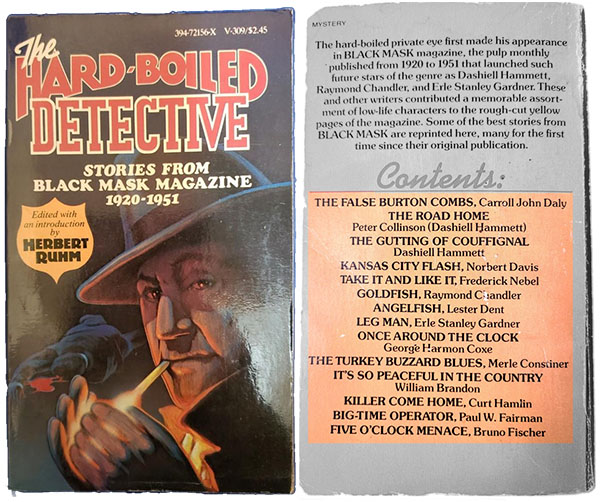
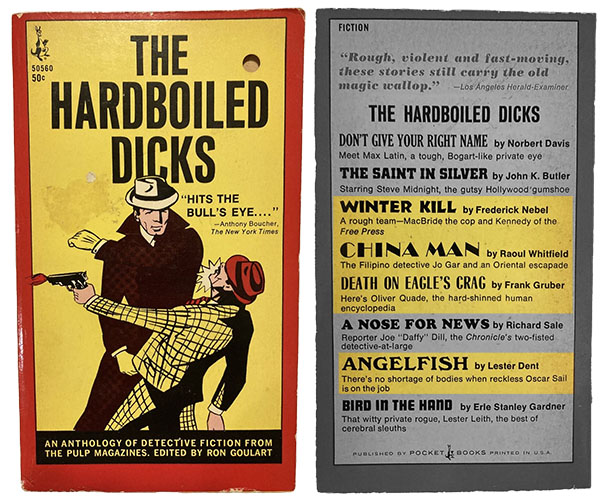
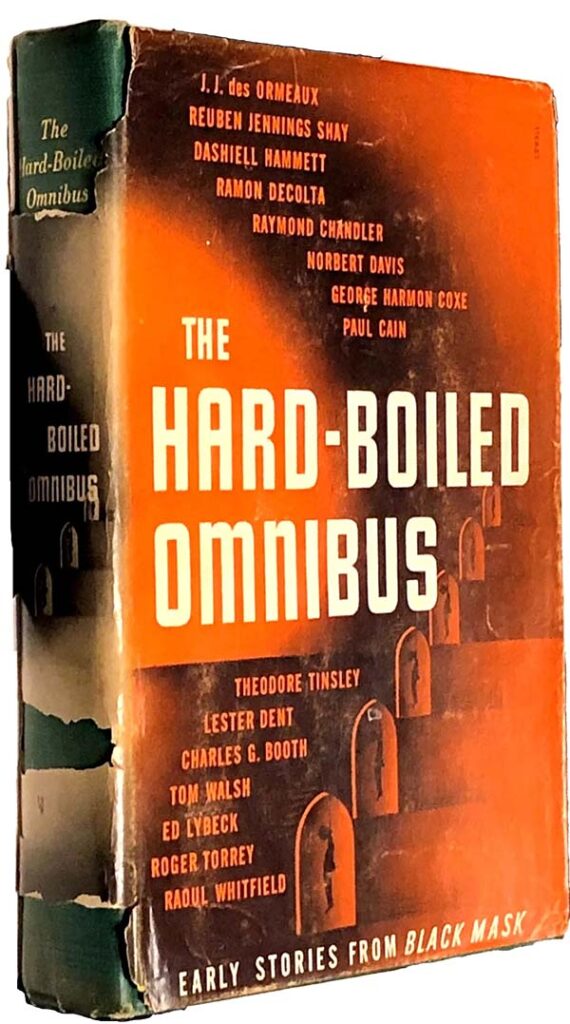
But now, there’s no doubt in my mind that something else deserves first place. In 2015, Otto Penzler put together this mammoth collection, The Black Lizard Big Book of Black Mask Stories. A massive volume at 1136 pages and nearly two and a half pounds in weight, it has nearly four and a half dozen stories including the magazine version of The Maltese Falcon by Dashiell Hammett. But bulk and weight isn’t all it has going for it.
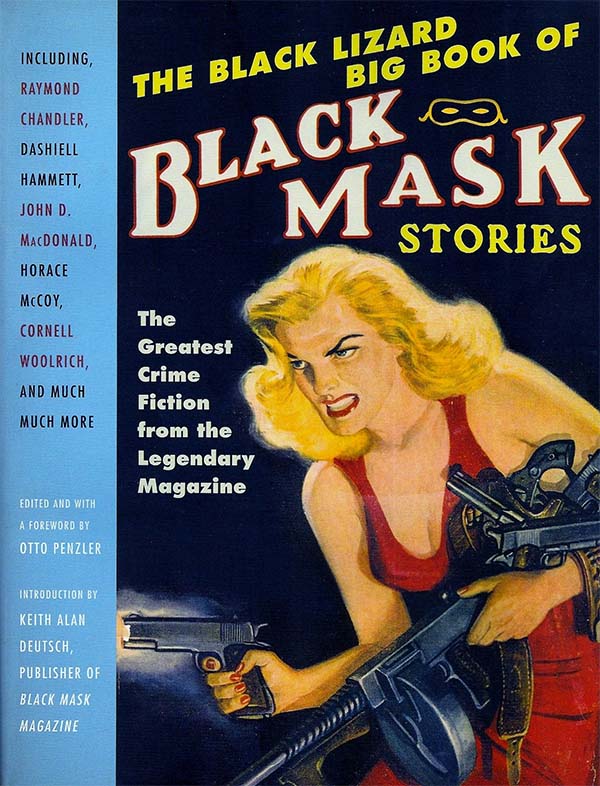
Both William Nolan’s and Joseph T. Shaw’s anthologies focus exclusively on the Shaw era. The Goulart volume has two stories each from Fanny Ellsworth’s and Ken White’s time. The Penzler volume has stories from all editors except, surprisingly, Florence M. Osborne. Ruhm also omits Osborne.
That’s a surprising omission, as is the near total absence of women authors except for Katherine Brocklebank (about whom more in a later post). In fact, the anthology makes the completely incorrect assertion that over the thirty plus year history of Black Mask, Brocklebank was the only known woman author. If you’ve read my earlier review of the August 1922 issue, you already know that this is wrong (Thyra Samter Winslow was the woman author in that issue). There are many more women authors, Earl and Marion Scott being another prominent example.
Other than this, I found the anthology very good. The paperback version reproduces the original interior illustrations. An unexpected bonus for senior readers is that lifting the book might qualify as weight training ?
Another Penzler anthology, The Black Lizard Big Book of the Pulps, is a wonderful complementary volume. If your shelves are tilting to one side because of The Black Lizard Big Book of Black Mask Stories, put this on the other side. Thank me later.
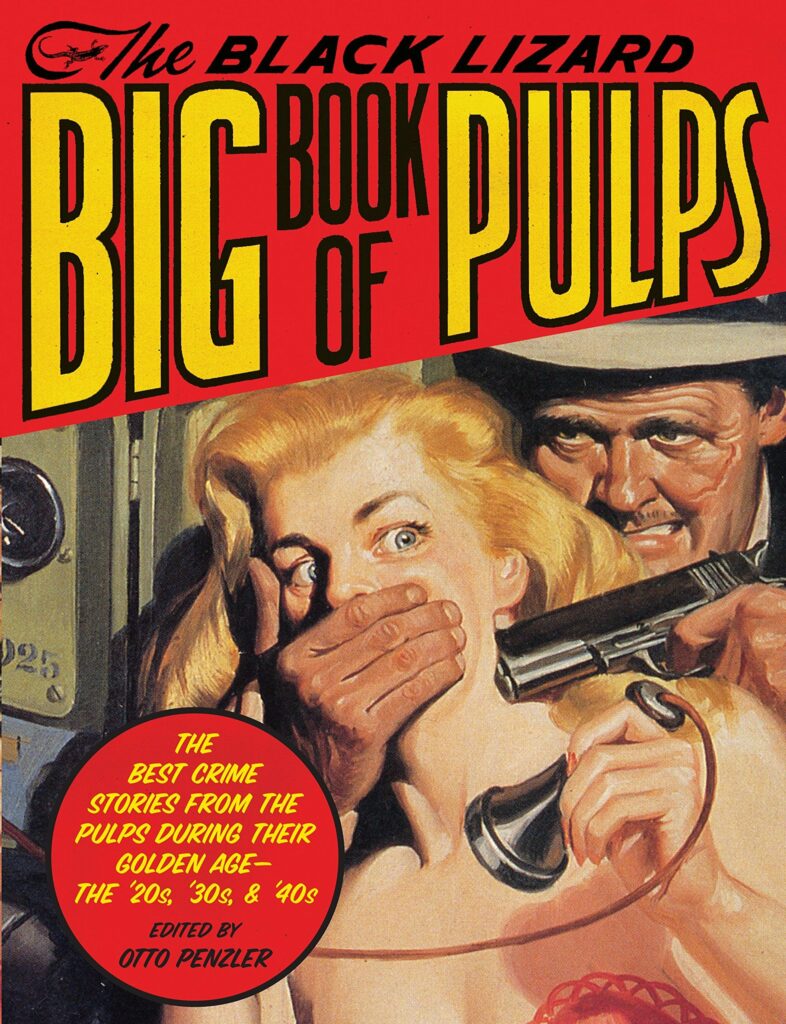
At nearly one thousand two hundred pages and two and a half pounds, this collection is a bargain at the asking price. In addition to more than two and a half dozen stories from Black Mask, there are stories from other detective and gangster pulps.
Most of the stories here are from the Shaw era, none from Widmer’s time. About equal weightage to Ken White and Fanny Ellsworth. One story from Florence Osborne’s reign. What a bargain.
There’s very little story overlap among the collections, so you could go and get all of them if you’re so minded. Paperback copies of the Shaw, Goulart and Ruhm are plentiful and cheap. You should be aware that the paperback Shaw collection omits three stories from the hardback, though.
While the anthologies listed above will give you a taste of the entire run, you might want to dive deeper into some authors and series. Here are some of my favorites.
Sutton, Cody and Shaw eras
Race Williams
Race Williams is significant as the first popular hard-boiled detective. I don’t think much of Daly’s prose, finding it prolix and dialect/slang ridden to the point of irritation. But his early writing pulses with energy and excitement, moving at bullet speed to a thrilling climax. The Tag Murders is probably Daly’s best work, providing Williams with an opponent worthy of his fire. The Flame is a woman sent by William’s enemies to distract him to his death.
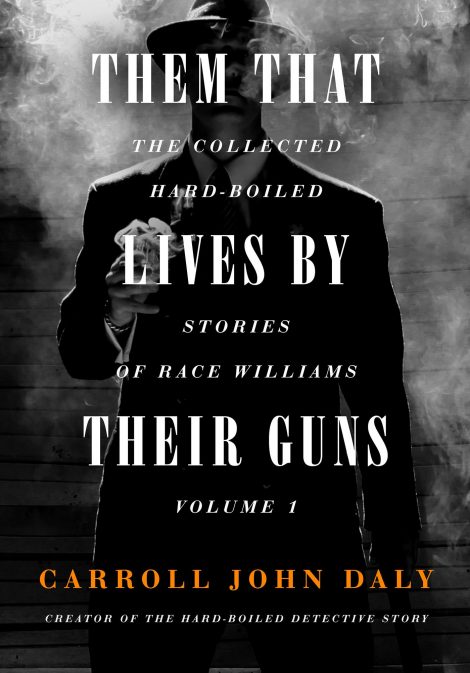
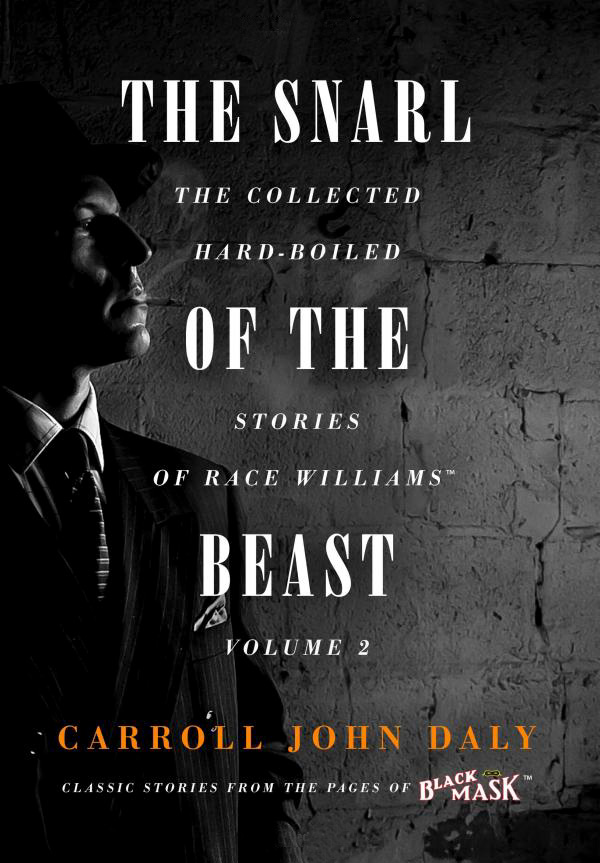
You can find the four stories that comprise that novel collected in Vol 2 of the Collected stories of Race Williams. While you’re getting that, you might also want to grab Vol 1, which includes the first 17 Race Williams stories that ran from 1923 to 1926 in Black Mask. Vol 1 also has three other hard to find stories showing Daly’s early hard-boiled work before Williams appeared: Dolly, Paying an Old Debt, and The False Burton Combs as well as editorial pieces by Daly himself.
The Continental Op
Where Daly was the creator of hard-boiled detective fiction, Hammett brought it mainstream recognition and appreciation. The Continental Op was Hammett’s first, deeply personal creation, drawing on his own experiences as a Pinkerton’s operative in Montana and thereabouts. This collection restores his stories, altered by multiple editors over the years, to their original published form. It’s another weighty collection, coming in at over seven hundred pages and over one and a half pounds.
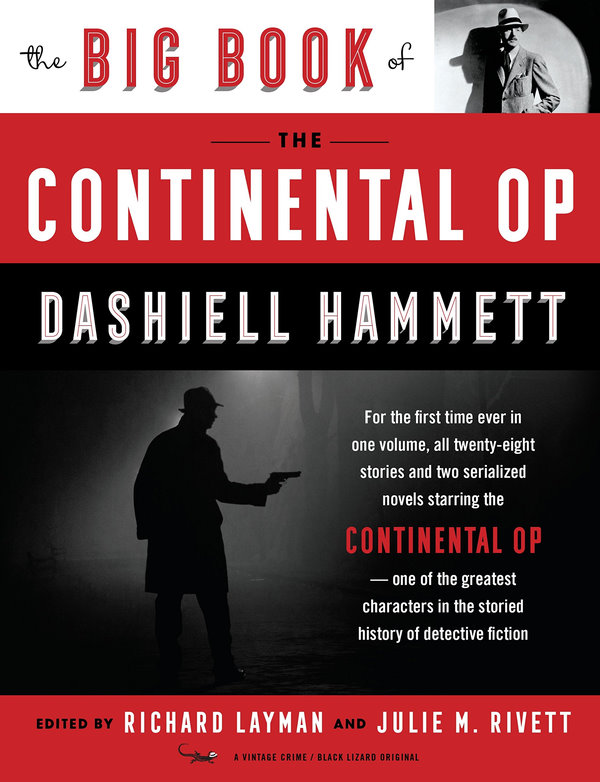
If you can only buy one Hammett book, get this one. If you can buy more than one, get The Maltese Falcon and Red Harvest.
Joe Shaw
Jo Gar
Raoul Whitfield never got the mainstream recognition that Hammett did, and for the most part that’s justified. Where Hammett was an artist, Whitfield was an entertainer. His stories of Jo Gar, though, are worth reading. By taking the familiar figure of the American PI and changing his nationality and his locale of operation, Whitfield is able to make him and his opponents more interesting than the common fedora-hatted, cigarette smoking, trenchcoat wearing PI we’re likely to see. Jo Gar is a lone man, with no support from the local police, who are often working against him or to seek to make him fail. Still, he has a code and he manages to live by it as he fights numerous, well-armed and powerful enemies, often for no financial reward.
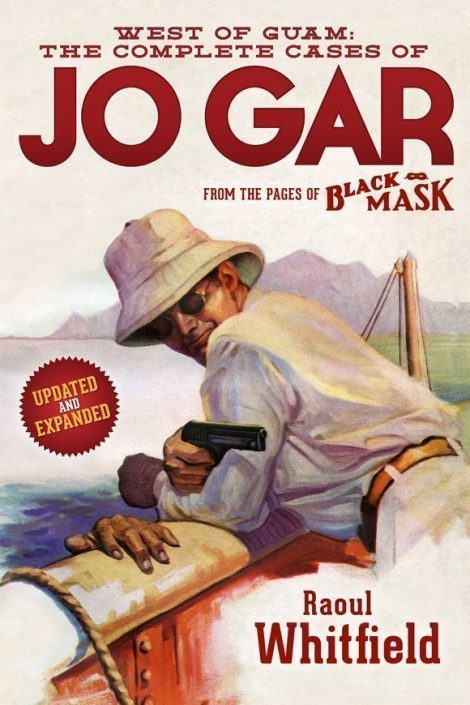
All of the Jo Gar stories are collected in West of Guam.
Kennedy and MacBride
Where Whitfield took his PI out of America, Nebel instead split the character into two. The alliance of alcoholic newspaperman Kennedy and straight shooting, intelligent inspector MacBride in cleaning up thoroughly corrupt Richmond City is one that’s hard to believe, but shows its depth in many of the stories. Nebel’s prose is crisp, cinematic, witty and often moving.
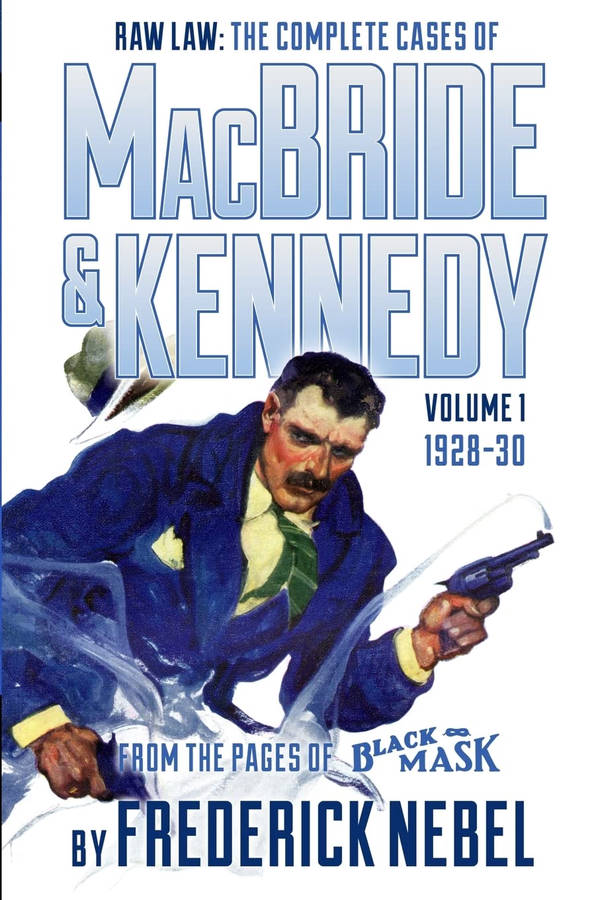
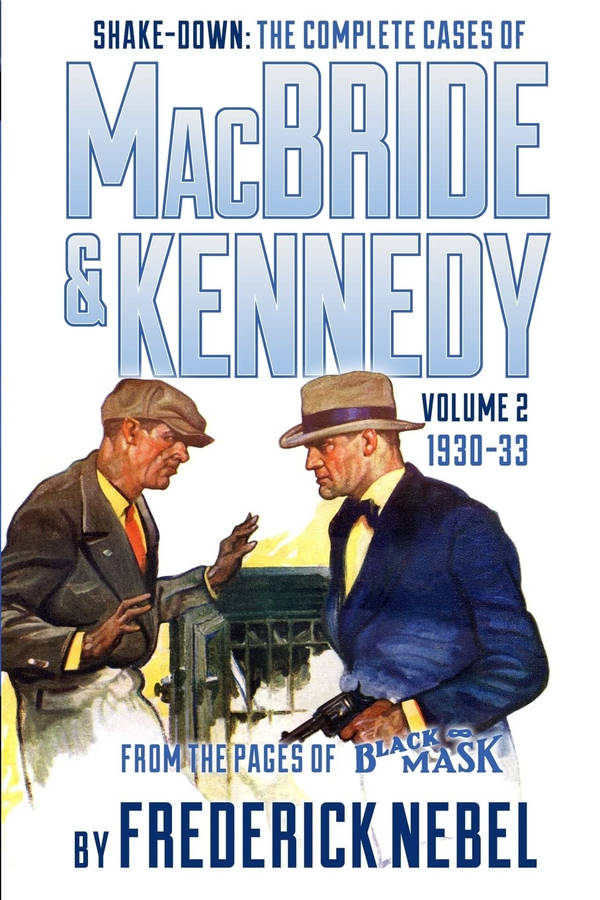
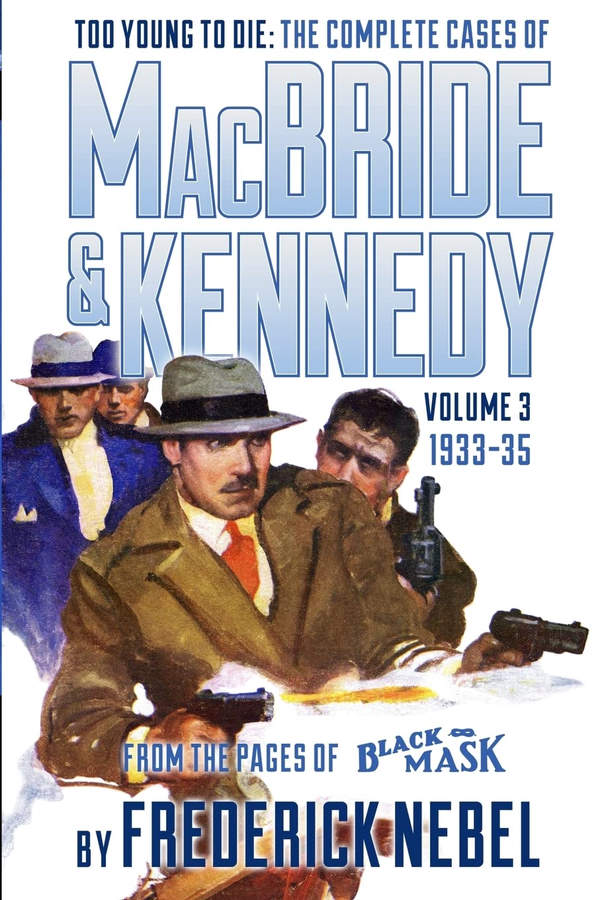
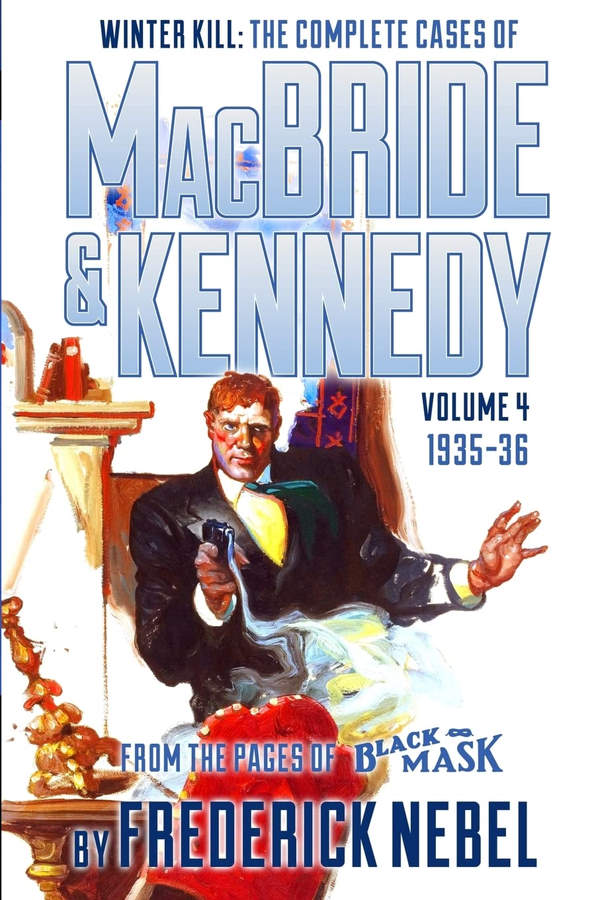
The complete stories are collected by Steeger Books in Vol 1, Vol 2, Vol 3 and Vol 4. With Illustrations.
Raymond Chandler
Hammett’s prose was clean and spare, his plotting left no loose ends. Chandler’s plotting may perplex, but his prose shimmers and his characters jump off the pages and are larger than life. His complete short fiction, minus the illustrations, can be found in Raymond Chandler: Collected Stories (Everyman’s Library). Chandler took the basic elements of his pulp stories and reworked them into his novels. Which is why, for a long time, he wouldn’t allow his short stories to be reprinted.

Paul Cain
The Complete Slayers: Fast One and the Complete Short Stories of Paul Cain is out of print. So is The Paul Cain Omnibus. What a pity. Cain’s stories are as hard-boiled as you can get. And maybe a little more. No wasted words. No explanations. Fast, furious and fatal action, not for the faint-hearted.
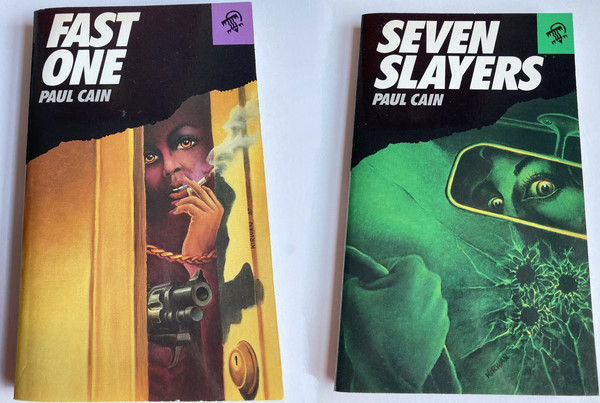
At least Fast One is in print. And if Seven Slayers is out of print, at least copies are easily available. You want to pick up either the Black Lizard edition from 1987 or the original Avon paperback from 1950. No illustrations in either of these, but they’re neatly done and proofed. Don’t buy the other editions.
Fanny Ellsworth
Cornell Woolrich
Centipede Press has the definitive edition of Woolrich’s short stories in two volumes: Speak to me of Death and Stories to be Whispered. Out of print, both volumes. If enough people ask nicely they might reprint them. Maybe.
If you have recommendations for an in-print volume that focuses on his short fiction in Black Mask, leave a comment.
Steve Fisher
Steve Fisher’s stories in Black Mask under the guidance of Fanny Ellsworth, rich in psychological depth and dark aberrant behavior, were seminal for the crime noir movement in fiction and the movies. I don’t think there is any collection of his short stories; I’d be happy to be shown I’m wrong.
Frank Gruber
Oliver Quade, the invention of Steve Fisher’s writing buddy, Frank Gruber, is a polar opposite to Fisher’s work. Quade is a salesman who relies on his wide-ranging knowledge to sell sets of encyclopedias to impressed listeners. Unfortunately, though, he keeps running into crimes that stop him from selling. His loss, our gain.
Funny and readable, these stories of city life in the 1930s and 40s draw a picture of a disappeared world: one with automats, hotels with master keys, bellhops, shoeshine boys and hotel detectives. One where surveillance and scientific detection was non-existent and criminals could get away if Quade wasn’t there, applying his genius brain and knowledge to keep a half-step ahead of trouble.
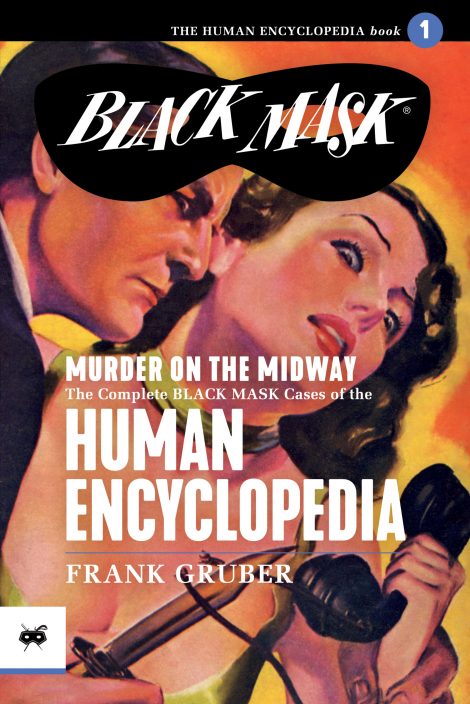
It sure as h*** isn’t a landmark in the genre’s development, but they are fun stories. Vol 1 is here with half the stories in the series. The other half should arrive soon.
Ken White & Harry Widmer
D L Champion’s Rex Sackler
Champion’s immortal creation, Rex Sackler, the prince of the penny pinchers, reluctantly pays his assistant the minimum that he can get away with, then gambles with him to get the money back. On his part, his assistant, Joey, would rather see Sackler fail than get the client’s money. Their mutual hatred makes for some very funny situations.
Like when Joey is out on bail, backed by Sackler’s money. When two goons kidnap Joey and Sackler, Sackler asks them to let go of Joey. Joey, thinking Sackler cares for him, is happy till he realizes that what drives Sackler is terror at the thought of losing his bail deposit. Not concern for Joey. At which point Joey starts plotting for Sackler to lose the money, even at great personal sacrifice.
A great series showing how Ken White injected humor into the magazine that had been full of harboiled, dark fiction under Joe Shaw and Fanny Ellsworth. Vol 1 is out, wait for the remaining volumes.
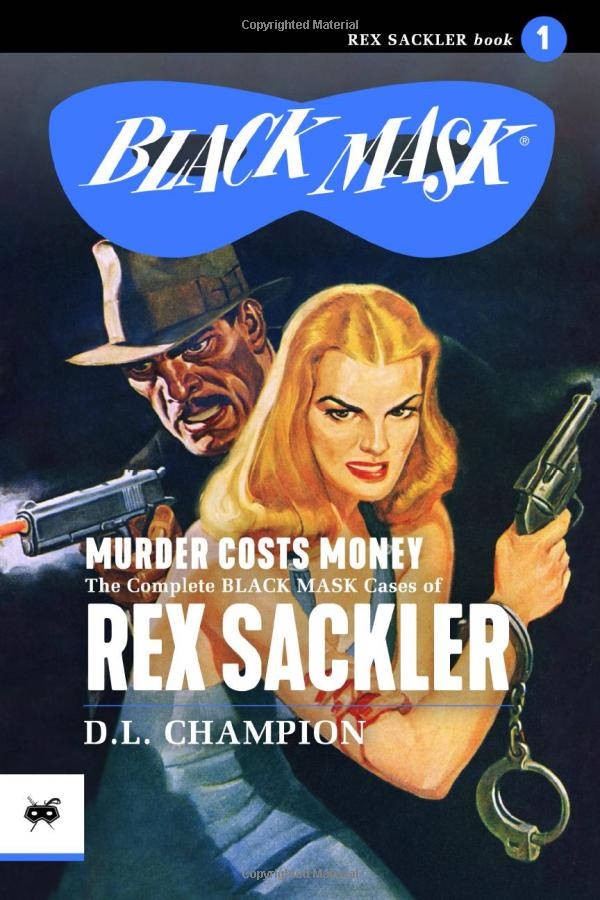
W T Ballard’s Bill Lennox
Ballard’s Lennox, trouble-shooter for a major Hollywood studio in the 1920s and 1930s, started work under Joe Shaw and worked into Ken White’s time. Possibly the first Hollywood detective. Reviewed in detail here.
John D. MacDonald
You probably know him as the creator of the original Florida PI, Travis McGee. Before MacDonald hit paperback gold with McGee, he did a long apprenticeship in the pulps, with Popular Publications’ Dime Detective, Black Mask, Detective Tales and New Detective taking a large chunk of his detective fiction. There are two collections of his short fiction from that time, Good Old Stuff and More Good Old Stuff. More Good Old Stuff reprints two of his Black Mask stories: Secret Stain and Deadly Damsel. Both are out of print but easily and cheaply available in hardcover and paperback.
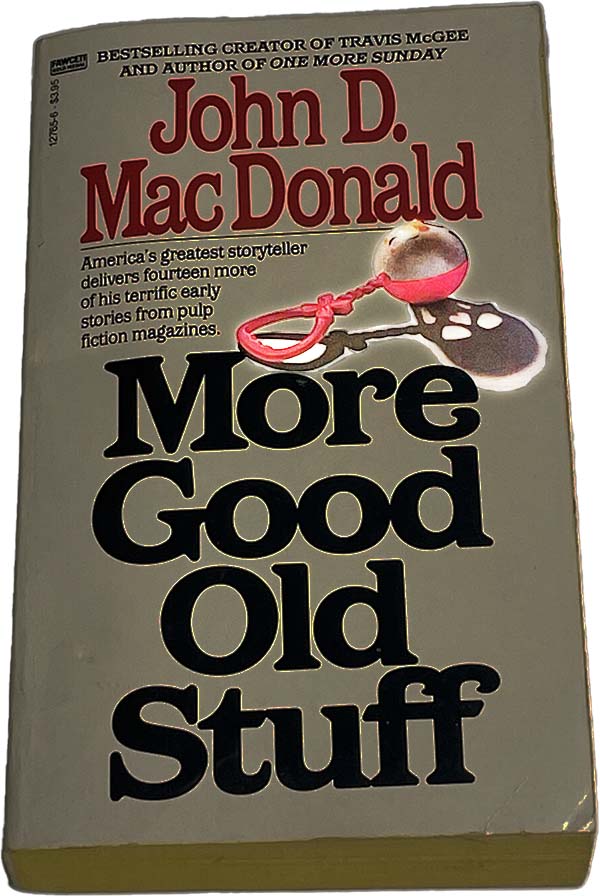
Talking about Good Old Stuff has to be a good way to end this series of posts. Thanks for sticking around.
Once again Penzler’s “impartial” selection process proves not to be anything of the sort. The man definitely has a massive blind spot as an editor.
Enjoyed reading the whole series of articles!
There are quite a lot more books I would list on part 21 but that is just me.
Glad you enjoyed the articles.
List the books 🙂
Steeger Books plans to reprint The Complete Paul Cain in one massive big special edition book.
I like the stories and novels of JDM but the two volume collections THE GOOD OLD STUFF and MORE GOOD OLD STUFF, made a major blunder by updating the stories. The stories should have been been reprinted unchanged from the forties and not revised and updated.
One of my favorite series from Black Mask deals with private eye Luther McGavock. Merle Constiner wrote 11 long novelets starring this character and they are presently being reprinted by Steeger Books.
Sai, I want to thank you for this series of essays about Black Mask. You could publish them as as book with some expansion and the addition of cover photos.
Maybe your next project can deal with Dime Detective!
I’m glad you enjoyed them; they took a big chunk of my time over two months when I didn’t get anything else done. Don’t think I’ll attempt anything like this soon 🙂
The upcoming Cain collection is good news.